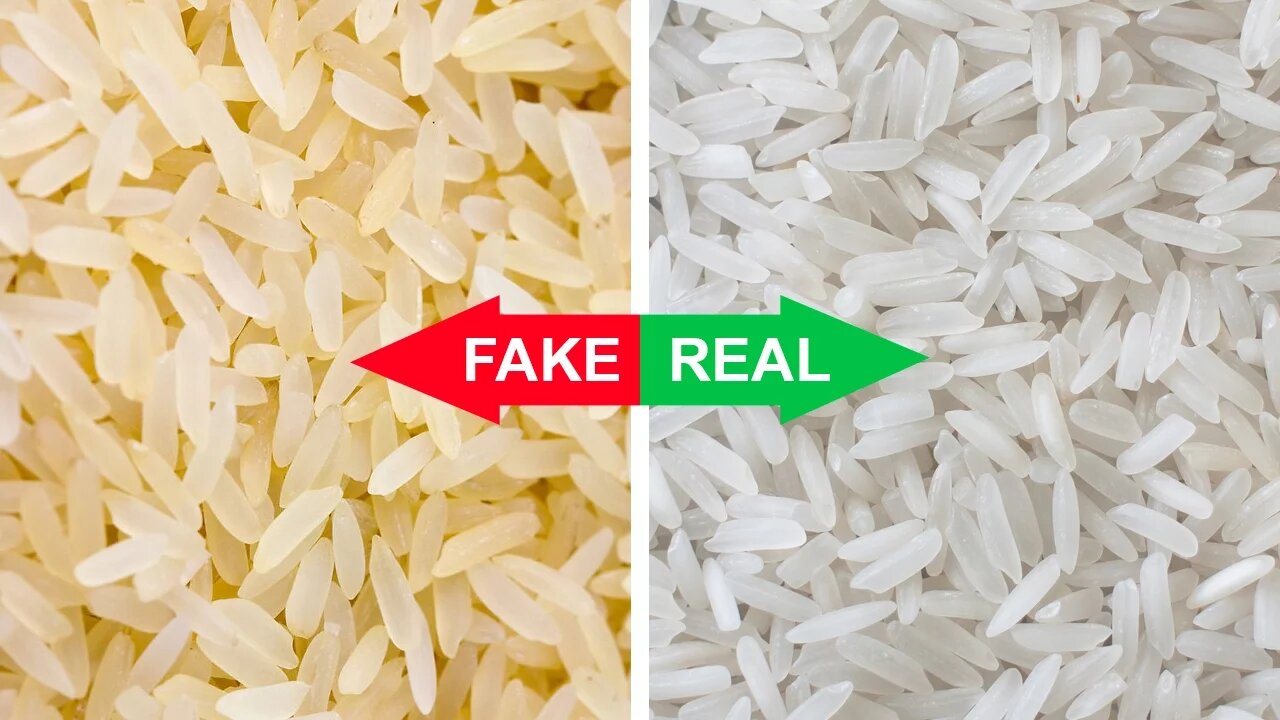Premium Only Content

Is Your Rice Fake? Find Out Right Now!
Who would have thought that a bag or box of rice may not be the real thing? To the naked eye, each grain certainly looks real.
It appears that major rice producing countries are mixing in some counterfeit food particles – and worse. They are even adding a bit of fragrance during packaging to help it pass the ‘smell test.’ To add volume to rice, certain foreign manufacturers are now mixing in plastic rice, which is actually formed by smashing white and sweet potatoes together. This potato concoction is then formed into shapes that resemble rice. Yet, these rice imposters don’t soften while cooking; they remain hard and could be a major actor in causing digestive issues.
Currently, no scientific rice authentication testing has been developed.
In today’s video, we will describe how you can conduct your own experiment to determine if your rice is a knock off or the real deal.
1. The Water Test
Take a glass of water
Pour in one tablespoon of raw rice and stir
Fake rice will float
It’s that simple!
2. The Fire Test
You may have a vivid memory of what burning plastic smells like
Safely outside, take a scoop of rice and burn it with a match or lighter
If it’s fake, the grains will release that foul odor
3. Boiling test
Carefully observe rice as it boils. Fake rice will begin to form a thick layer at the top of the container
4. The Fungus test
After you cook the rice, seal it and store it in a container. Check it in 2 or 3 days. If mold is present, it is definitely real rice. Fake particles of rice are unable to produce mold.
5. Hot Oil Test
Drop a tablespoon of rice in very hot oil. Plastic rice will immediately melt, sink to the bottom and become glued together.
Facebook: https://bit.ly/38BWbw3
Pinterest: https://bit.ly/2Irvwa6
Disclaimer: The materials and the information contained on Natural Cures channel are provided for general and educational purposes only and do not constitute any legal, medical or other professional advice on any subject matter. These statements have not been evaluated by the FDA and are not intended to diagnose, treat or cure any disease. Always seek the advice of your physician or other qualified health provider prior to starting any new diet or treatment and with any questions you may have regarding a medical condition. If you have or suspect that you have a medical problem, promptly contact your health care provider.
-
 3:55
3:55
Natural Cures
1 year ago $0.84 earnedDrink This Tea Tonight to Flush Out All The Toxins from the Body
3.3K4 -
 LIVE
LIVE
2 MIKES LIVE
3 hours ago2 MIKES LIVE #177 Open Mike Friday and DOGE ball!
291 watching -
 2:02:32
2:02:32
Revenge of the Cis
6 hours agoEpisode 1443: True Love
63.8K5 -
 1:02:53
1:02:53
In The Litter Box w/ Jewels & Catturd
1 day agoLOOK! SQUIRREL! | In the Litter Box w/ Jewels & Catturd – Ep. 737 – 2/7/2025
64.6K43 -
 1:42:38
1:42:38
The Quartering
7 hours agoDOGE Goes Nuclear, USAID SHUTDOWN, Southern Border SECURED, Kanye West MELTDOWN & More
102K58 -
 7:35:23
7:35:23
Dr Disrespect
9 hours ago🔴LIVE - DR DISRESPECT - WARZONE - 10 WINS IN A ROW CHALLENGE
168K26 -
 21:47
21:47
Film Threat
6 hours agoLIVE FROM MEGACON IN ORLANDO, FLORIDA! | Film Threat Live
57.8K -
 4:20:46
4:20:46
Right Side Broadcasting Network
11 hours agoLIVE: President Trump Meets With Japanese Prime Minister Ishiba - 2/7/25
229K34 -
 2:01:23
2:01:23
The Dilley Show
8 hours ago $17.44 earnedVought Confirmed, Elon Loves Trump and Q&A Friday! w/Author Brenden Dilley 02/07/2025
90.9K19 -
 1:57:39
1:57:39
The Charlie Kirk Show
8 hours agoThe Greatest Deportation Wave in History + AMA | Homan | 2.7.2025
156K87